- Home
- Darrell Maloney
Death Comes Calling (Ranger Book 3)
Death Comes Calling (Ranger Book 3) Read online
DEATH COMES CALLING
Ranger:
Book 3
By Darrell Maloney
This is a work of fiction. All persons depicted in this book are fictional characters. Any resemblance to any real person, living or dead, is purely coincidental. Copyright 2017 by Darrell Maloney
This book is dedicated to my loyal readers.
Before you came along I was merely a man stumbling around in the dark, a sack full of jumbled words thrown over my shoulder.
You’ve given me someone to share those words with and a reason to arrange them into some semblance of order.
You’ve also given me a chance to pursue a lifelong dream.
Thank you all.
THE STORY THUS FAR…
Randy was a Texas Ranger with a rather unique story to tell. His family had long ties to the Rangers, dating back five generations.
When Wilford P. Maloney first signed on with the Rangers, Comanche still roamed west Texas. Buford P. was wounded by a brave’s arrow, but lived to see another day.
So did his badge, and he proudly pinned it to the chest of his son.
Thus was born a family tradition which spanned more than a hundred years.
But Randy would be the last Maloney to wear the tattered badge. His earliest memories of his grandmother were of her crying herself to sleep at night, despite his grandfather’s assurances he was too ornery to be killed.
He’d seen the stress being a lawman’s wife had put upon his mother, and was convinced it led to her early death.
He’d joined the Rangers himself, because it was expected of him.
But he vowed on his mother’s grave she’d be the final casualty. That he’d serve his time with the Rangers because that’s what his father and grandfather had wanted.
But when his time was done, he promised his mom, the old badge would retire with him. He’d bury it atop old Wilford P.’s grave. It would be returned to its first bearer.
He’d take an early retirement in his early thirties. And only then would he marry and have children.
His wife would never serve penance as a lawman’s wife. She’d never spend all night looking at the ceiling above her bed, wondering whether her husband was lying dead in a street somewhere.
She’d never face the prospect of being a widow.
She’d never have to raise her children thinking their father was just someone beneath a headstone and a portrait on the wall. Someone they’d never see or touch or laugh and cry with.
Randy’s son, if he had one, would never see Randy get up in the morning and strap on his duty weapon, then pin the badge to his chest.
Randy’s son would instead see his father go off to a nine-to-five job as an insurance agent, or an accountant, or whatever he decided to do after his service to Texas was done.
Randy’s son might strive to follow in his father’s footsteps. But it wouldn’t be as a Texas Ranger. It would be as something decidedly… safer.
Randy was a strapping man. Women flocked to him. He never lacked for attention.
But he was something else as well. He was brutally honest. He never put on airs and he always told them where they stood.
If they wanted a chance at Randy’s heart, they’d have to wait until he served his sentence.
A few thought they could change his mind with their feminine charms. But he was steadfast and true to his word.
A few tried to stick it out and wait for him.
But ten years was an awfully long time to wait for a maybe.
Randy was billeted in the west Texas city of Lubbock. It was at the southern tip of the Great Plains, the western edge of the cotton belt. An odd mix of churches, banks and college kids. Lubbock had only recently allowed the sale of liquor and beer within its confines. One camp swore that would be the death of a God-fearing town. Others maintained the move finally brought a hick town out of the dark ages.
It was said that no Lubbock native left for good. Many tried to put her behind them, to start a new life elsewhere. But the Hub of the Plains always called them back.
Lubbock was Ranger Randy’s home town, and he was back by choice. He could have requested an assignment anywhere in the lone star state but chose to go home instead.
It was early into Randy’s career that the world changed in a way few saw coming.
A massive storm on the face of the sun sent electromagnetic pulses which bombarded the earth with something akin to static electricity.
EMPs, the scientists called them.
Some more sensitive humans suffered nausea or were disoriented. A few cattle and horses got dizzy and fell over.
The internal navigational systems in some birds were forever damaged. Geese actually flew north for the winter for the first time.
By far the bulk of the damage was inflicted not on living, breathing creatures, but on machines.
Nearly everything electric or electronic was shorted out.
A worldwide blackout resulted. One the scientists said would last for generations. Vehicles stopped working. Factories shut down.
The human race was in dire straits.
A few enlightened people foresaw the event. They called themselves preppers. They were able to plan for the chaos by stockpiling food and supplies. A small percentage of the preppers were able to protect their electronics from harm by building something called a Faraday cage.
Those preppers lived in relative comfort, watching movies and eating microwave dinners and hot coffee while nearly everyone else ate scraps of food from dumpsters and boiled pond water to drink.
Steve Peters was such a prepper.
He thought himself a genius, but in reality wasn’t smart at all.
Virtually everything he knew was taken from a single publication: a two hundred page book by Charlie Bennett entitled Prepping for Armageddon on a Budget.
It was the prepper’s Bible. It was the go-to guide for all things prepping.
It was the book which saved Steve Peters’ life.
But it didn’t make him any smarter than he was before he bought the book.
For although Steve Peters thought himself smarter than the average bear, he was pretty much an idiot.
One of the prepper’s basic tenets is also one of his easiest: keep one’s mouth shut. A prepper is never to reveal to others what his capabilities are, how much food he has stored, how much firepower he has. For in time of crisis, no one… absolutely no one, can be trusted.
The book had told Steve exactly how to hide in plain sight in the middle of a suburb. How to make his back yard impenetrable even without a working alarm or surveillance system. The project cost him exactly eight dollars and seventy five cents, and ensured that no one would climb his fence uninvited.
It also taught him how to make his house look vacant even when fully occupied.
For no looter assaults an empty house.
Steve set up his basement sanctuary with almost all the creature comforts he enjoyed before the blackout. He had enough supplies to last him several years. He could have stayed there as cozy as a bug in a rug, while the rest of the world suffered and died all around him.
Except he made one critical mistake.
He broke that cardinal rule.
He wasn’t smarter than the average bear after all.
He wasn’t even smarter than that average bear’s droppings.
Steve not only let it slip he had a working ham radio.
He also invited an outsider into his “empty” house to see he had a working generator as well .
Granted, the guy was a high ranking Texas Ranger, and therefore should be trustworthy.
He’d have liked to believe that. But Prepping 101 calle
d for no one to be trusted under any circumstances.
The only option Steve had left was to kill the Ranger.
Major John Shultz, Commander of Ranger Company C, must die.
And now, Book 3 of the Ranger series,
DEATH COMES CALLING…
Chapter 1
A solitary man awoke at his usual time and sat up in bed, stretching and fighting the urge to roll over and go back to sleep.
He was alone but not lonely.
For he’d been alone for many years.
Even when in a crowded room.
Steve Peters never understood why people disliked being alone. He thought people who craved the affection of others were weak and somehow defective.
He didn’t want or need human interaction. He didn’t need hugs or the closeness and intimacy that others found comfort in.
He was a loner, and wore his ability to be alone as a badge of honor.
Quite simply, he didn’t need anyone, in any form or fashion.
It wasn’t a common trait among preppers.
Most preppers understood there was strength in numbers. That developing and maintaining an effective security system required bodies. So did growing operations and livestock maintenance. Sure, those additional bodies consumed additional food and other resources. But they also brought with them another set of hands to help grow crops. To help gather food. To help stand guard.
Having additional bodies was more than just a wash. It was a net gain.
Most preppers knew that and accepted it.
Some had tried to tell Steve that in the months and years leading up to the great blackout. A couple had even tried to recruit him; offering him the chance to join their groups.
Steve steadfastly declined.
In Steve’s mind he was superior to them all.
In Steve’s mind he needed nobody.
Steve didn’t consider himself the fool many had called him over the years. If he were, he wouldn’t have had good food to eat and a comfortable bed to sleep in at night, a ceiling fan rotating slowly over his head.
While lesser people all over the city were scratching out a meager existence, eating cold canned beans and stale bread.
Or giving up altogether and committing suicide in great numbers.
He’d stopped counting the gunshots long before, but he had the sense they were increasing day to day.
He’d heard the first ones right around sundown on the second night of the blackout. Word was getting around that this wasn’t just a blown transformer on a power pole down the street. No, word was that this was big. It was worldwide, and it was permanent.
Word was that the police wouldn’t be able to help. There was no 911 to call anymore, and even if there was there was no way for the cops to come to anybody’s aid.
For the rest of their natural lives, the residents of Lubbock were on their own. Those who owned guns had better know how to use them or learn in a hurry.
Those who didn’t own guns? Well, they were just screwed, for lack of a better term.
It was every man for himself, and only the strong would survive.
The first shots Steve had heard, on the second night, could have been anything.
It could have been a bandit holding someone up and then shooting them out of meanness.
It could have been someone taking advantage of a newly impotent police department to end an old grudge once and for all.
It could have been one of Steve’s neighbors, firing a gun into the air to scare away a prowler.
But it wasn’t any of those things.
It was a young couple, three blocks over, who decided they weren’t cut out for such a horrible life.
It was the man, shooting his wife in the heart, and then again in the head to ensure she didn’t suffer. Then putting the gun into his own mouth and pulling the trigger a third time.
It was the sad tale of a couple just beginning their adult lives who decided instead to take the easy way out.
It was the first of many times that Steve had heard shots which snuffed out the lives of others who had similarly given up.
At the beginning, the shots almost always occurred within an hour of sunset. That, apparently, was when those so inclined grew most depressed, and were most likely to do the deed.
Perhaps it was dread from contemplating another long night of terror. Or maybe they just didn’t like going to sleep not knowing if they’d wake up with a gun in their faces.
Or perhaps they didn’t like going to bed hungry, and it gnawed away at their psyche.
The police took to calling it the “killing hour.”
Gradually, though, the shots started coming at all hours of the day.
Desperation, it seemed, was expanding to fill the daytime hours as well.
That was going to work to Steve’s benefit. For to carry out his assassination of John Shultz, he’d have to count on his shots not attracting too much attention.
During the two days he’d been on stakeout before, he’d seen some of the neighbors, sitting on their porches or under the trees in their front yards to escape the stifling heat from their houses.
And he’d noticed a curious thing.
When shots rang out, even when they were close by, the neighbors pretty much ignored them.
They didn’t run toward them, to find out what happened and see if they could help.
They didn’t run into their homes in fear of their own lives.
They just went about their business.
Steve found joy in knowing that. For he was getting ready to kill two people. A man he knew as a Texas Ranger, and a boy of eight or nine.
Chapter 2
Steve didn’t know the boy’s name. Hadn’t thought to ask.
And it didn’t matter anyway.
He had known that when the world went to hell one of the first things to disappear from the supermarket shelves would be the candy.
It was human nature.
When people were stressed, they liked to ease their concerns with junk food and candy.
It was the American way.
He knew that four months into the blackout candy would be very hard to come by.
To children it would be more valuable than gold.
Steve didn’t much like candy himself. But he had the forethought to stash away a few bags of it with his other provisions. He figured it would make good barter material later on.
And he couldn’t have been more right.
He saw the boy actually lick his lips when he pulled the bag of peanut patties from behind his back.
“Want these?” Steve had asked.
“Oh, boy, sure!”
Then, remembering the whole “stranger, danger” lecture he’d gotten at his grade school, the boy cocked a suspicious eyebrow.
He asked, “What do I have to do?”
“Oh, it’s easy. All you have to do is go knock on the door of a Texas Ranger who lives on the next block. I’ll write down the house number so you’ll go to the right one.
“All I want you to do is to knock on his door, and tell him the lady two doors down is sick and needs his help. Then I want you to walk over there with him.
“After you walk him over to the lady’s house, you can leave him and come back here. And I’ll give you the whole bag of candy.”
“Wow! The whole bag?”
“That’s right, my little friend. The whole bag.”
Kids are saps, he thought to himself as he wrote the major’s street address on a piece of paper.
“Now, I want you to wait fifteen minutes before you go knock on his door, okay?”
The boy looked puzzled.
“You do know when fifteen minutes is, don’t you?”
“No, sir. Not without a watch, anyway.”
Steve suddenly had a bit of a dilemma.
Then he noticed the sun’s shadow, which extended about four inches from the curb where they stood.
He took a pebble from the grass and placed it close to the curb, an
inch or so from the edge of the shade.
“Watch this pebble. When the sun hits it, fifteen minutes are up. Then you can go. Remember, the old lady lives two houses on the other side of him. Okay?”
“Okay.”
Steve took off like a shot, to the nearest alley and down to a vacant house he’d scouted out earlier in the day.
It would be his ambush house. The one where he’d climb a huge oak tree in the back yard to get onto the roof.
He was almost giddy. He’d been looking for the opportunity to use his rifle on a real human being for a very long time. He’d even dreamed about it.
In Steve’s mind, there was no greater feeling of power than at the very moment one man killed another. He imagined it was a feeling greater than sex. Better than any high he’d ever experienced.
And although he hadn’t experienced a lot of love in his life, he imagined it felt better than that too.
He’d use the roof as a sniper’s nest to shoot the major in the head as soon as he was far enough away from his house not to run back into it.
The boy would be stunned and confused at the sight of the major’s head exploding, and would momentarily freeze.
That moment would be all it took to dispatch the boy as well.
Within a ten second span Steve would rid himself of Major Shultz and the boy witness.
And the best part: he’d get to keep the candy to use to barter to someone else at another time.
Chapter 3
On the other side of Lubbock a young woman was taking off her boots and replacing them with a pink set of Nike running shoes.
She wouldn’t be running, though.
She’d be riding a spare bicycle borrowed from her friend Karen.
Karen had also been her boss before the world went to hell. But now that the restaurant had gone out of business, probably forever, neither would likely ever work again.
At least not for money.

 A Perilous Journey
A Perilous Journey The Yellowstone Event: Book 6: The Aftermath
The Yellowstone Event: Book 6: The Aftermath Eden Bound
Eden Bound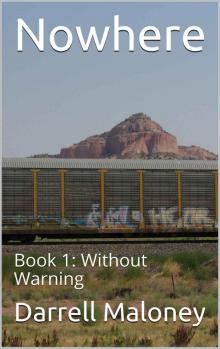 Without Warning
Without Warning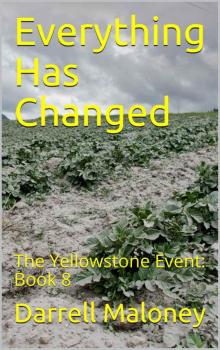 Everything Has Changed
Everything Has Changed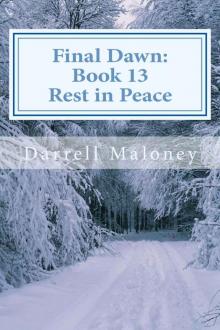 Rest in Peace
Rest in Peace This Changes Everything
This Changes Everything The Final Chapter
The Final Chapter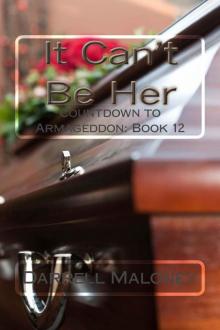 It Can't Be Her
It Can't Be Her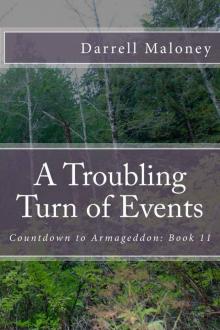 A Troubling Turn of Events
A Troubling Turn of Events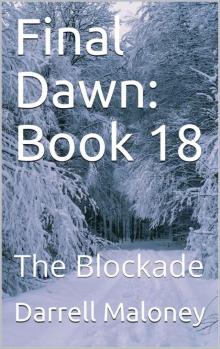 The Blockade
The Blockade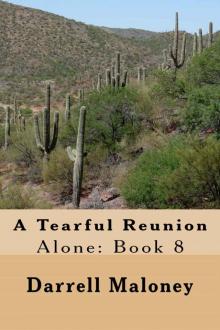 A Tearful Reunion
A Tearful Reunion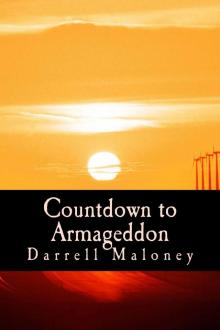 Countdown to Armageddon
Countdown to Armageddon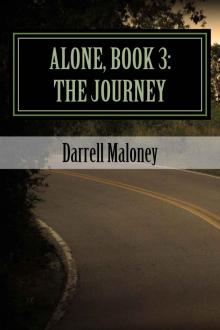 Alone, Book 3: The Journey
Alone, Book 3: The Journey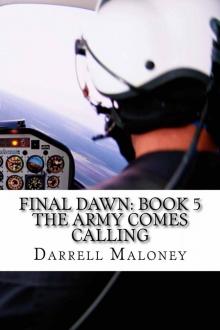 The Army Comes Calling
The Army Comes Calling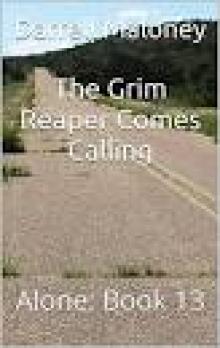 The Grim Reaper Comes Calling
The Grim Reaper Comes Calling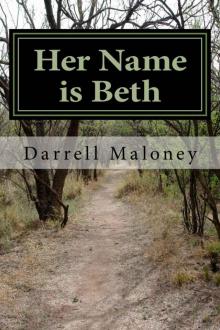 Her Name is Beth: Alone: Book 5
Her Name is Beth: Alone: Book 5 Red: The Adventure Begins
Red: The Adventure Begins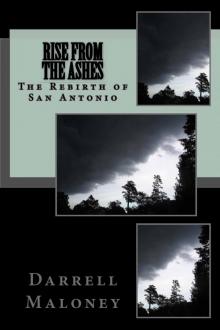 Rise From The Ashes: The Rebirth of San Antonio (Countdown to Armageddon Book 3)
Rise From The Ashes: The Rebirth of San Antonio (Countdown to Armageddon Book 3)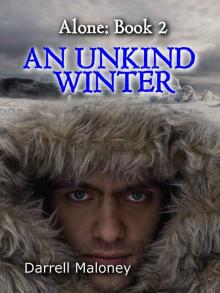 An Unkind Winter (Alone Book 2)
An Unkind Winter (Alone Book 2)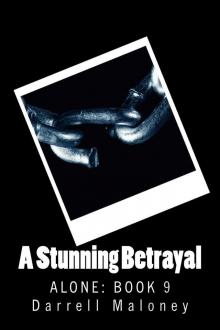 A Stunning Betrayal: Alone: Book 9
A Stunning Betrayal: Alone: Book 9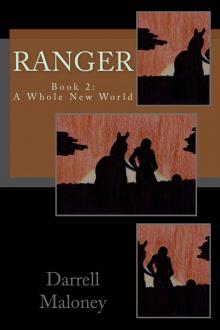 A Whole New World: Ranger: Book 2
A Whole New World: Ranger: Book 2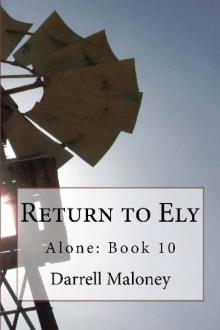 Return To Ely
Return To Ely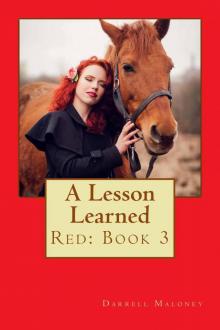 A Lesson Learned: Red: Book 3
A Lesson Learned: Red: Book 3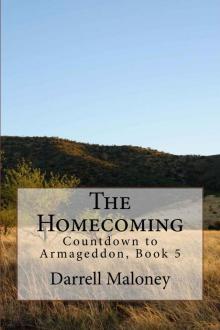 The Homecoming: Countdown to Armageddon: Book 5
The Homecoming: Countdown to Armageddon: Book 5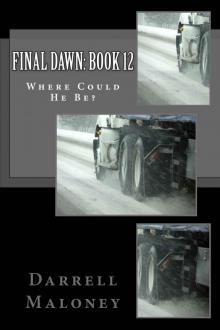 Final Dawn: Book 12: Where Could He Be?
Final Dawn: Book 12: Where Could He Be?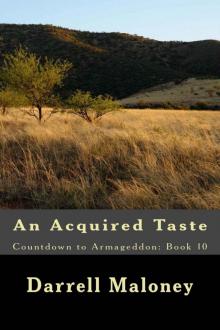 An Acquired Taste
An Acquired Taste On Desert Sands: Alone: Book 6
On Desert Sands: Alone: Book 6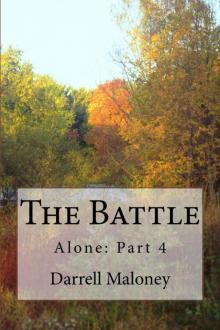 The Battle: Alone: Book 4
The Battle: Alone: Book 4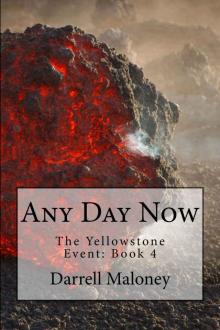 Any Day Now
Any Day Now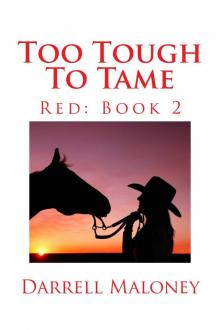 Too Tough To Tame: Red: Book 2
Too Tough To Tame: Red: Book 2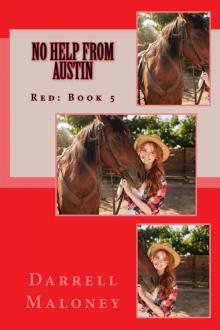 No Help From Austin: Red: Book 5
No Help From Austin: Red: Book 5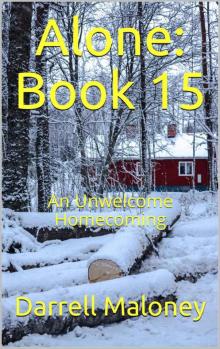 An Unwelcome Homecoming
An Unwelcome Homecoming A New Start: Final Dawn: Book 9 (Volume 9)
A New Start: Final Dawn: Book 9 (Volume 9)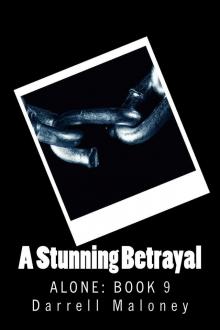 A Stunning Betrayal
A Stunning Betrayal An Undeclared War (Countdown to Armageddon Book 4)
An Undeclared War (Countdown to Armageddon Book 4)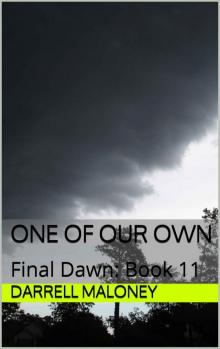 One of Our Own: Final Dawn: Book 11
One of Our Own: Final Dawn: Book 11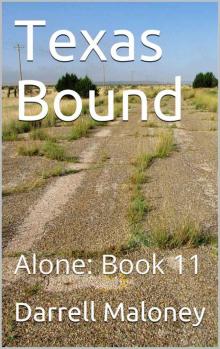 Texas Bound: Alone: Book 11
Texas Bound: Alone: Book 11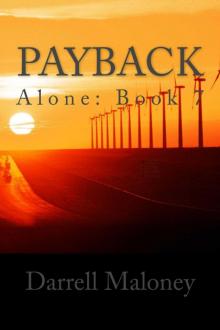 Payback: Alone: Book 7
Payback: Alone: Book 7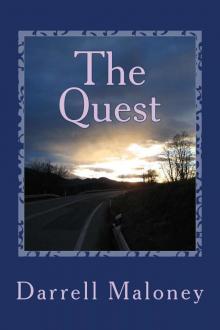 The Quest: Countdown to Armageddon: Book 6
The Quest: Countdown to Armageddon: Book 6 The Siege
The Siege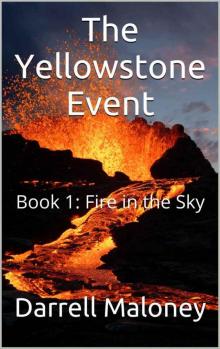 The Yellowstone Event: Book 1: Fire in the Sky
The Yellowstone Event: Book 1: Fire in the Sky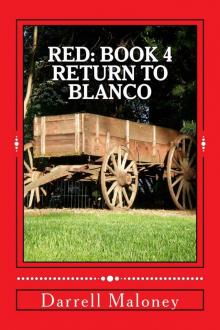 Return to Blanco (Red Book 4)
Return to Blanco (Red Book 4) The Search
The Search AFTER THE DUST SETTLED (Countdown to Armageddon Book 2)
AFTER THE DUST SETTLED (Countdown to Armageddon Book 2)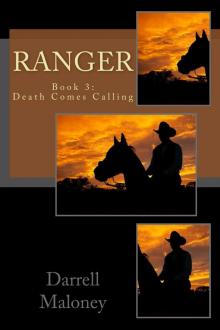 Death Comes Calling (Ranger Book 3)
Death Comes Calling (Ranger Book 3)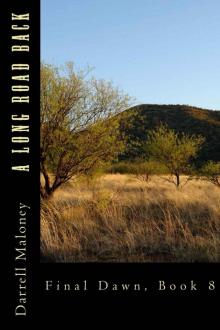 A Long Road Back: Final Dawn: Book 8
A Long Road Back: Final Dawn: Book 8